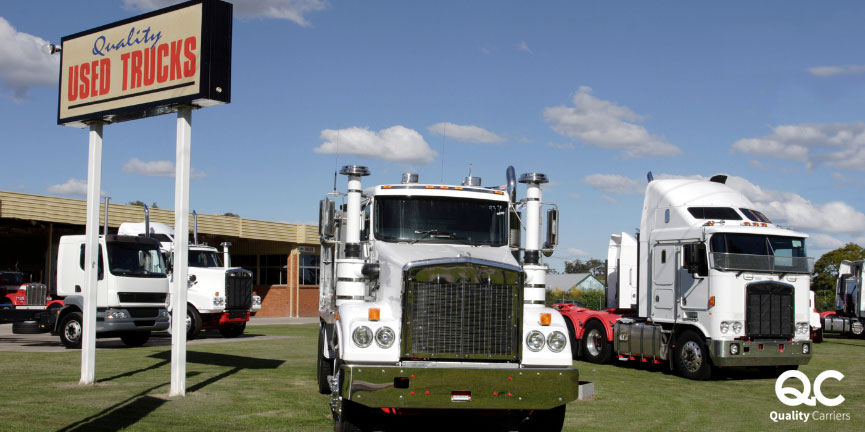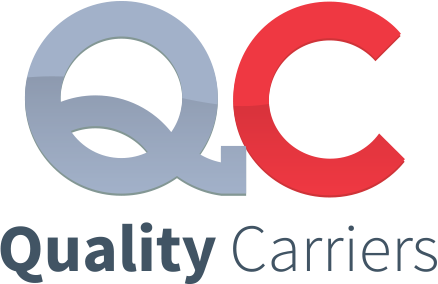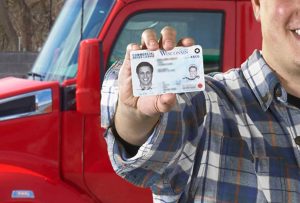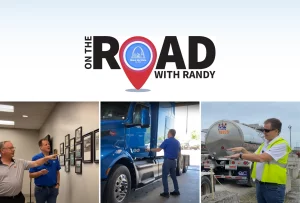Becoming an owner-operator in the trucking industry is a dream for many aspiring truck drivers. It represents a significant career and the chance to run your own business and enjoy the benefits of being your boss. However, the path to ownership can seem daunting, especially when finances are tight. The good news is that it’s possible to become an owner-operator with little to no money upfront if you’re willing to put in the effort, research, and determination.
This blog will guide you through making your owner-operator dream a reality, even if you’re starting with limited funds.
What is an Owner-Operator?
An owner-operator is an independent entrepreneur in the transportation industry who owns and operates a commercial truck or a fleet of trucks as a business. Unlike company drivers who work as trucking company employees, owner-operators have complete control over their operations, from choosing their equipment to managing all aspects of their business. This includes finding clients or contracts, handling administrative tasks such as bookkeeping and invoicing, ensuring regulatory compliance, and covering expenses like fuel, maintenance, and insurance.
While owner-operators enjoy a high degree of autonomy and have the potential for greater earnings, they also bear the financial responsibility and risks associated with their trucking enterprise. They play a vital role in the logistics and transportation industry, contributing to the movement of goods across the country.

Financing Options
Financing is one of the most common routes to becoming an owner-operator. While it may require some initial investment, there are financing options designed to minimize the upfront costs. Look for lenders that specialize in commercial truck financing. These lenders often understand the challenges faced by new owner-operators and may offer more flexible terms, including lower down payments and competitive interest rates. Be sure to shop around and compare offers to find the financing solution that best suits your needs. Here are some options:
- Equipment Financing: This option allows you to secure a loan for purchasing a commercial truck. It’s a common choice for those looking to become owner-operators. Lenders may offer different terms and interest rates, so shopping around is essential to find the most favorable deal. While a down payment might still be required, it’s often lower than traditional vehicle financing.
- SBA Loans: The U.S. Small Business Administration (SBA) offers loan programs to assist small businesses, including aspiring owner-operators. SBA loans typically offer longer repayment terms and lower down payment requirements than conventional loans. To qualify, you’ll need a solid business plan and good credit.
- Personal Loans: If you have a strong credit history, consider a personal loan to finance your truck. While this option doesn’t require business-specific documentation, it does involve personal liability.
Commercial Truck Loans
Commercial truck loans are designed for individuals looking to purchase a truck for business purposes. These loans can cover a significant portion of the truck’s cost, reducing the money you must bring. You’ll typically need a solid credit history and a well-prepared business plan to secure a commercial truck loan. Some lenders may also require a down payment, so be prepared to contribute at least a portion of the purchase price. They come in various forms, each with its features:
- Direct Commercial Truck Loans: Banks, credit unions, and online lenders provide traditional commercial truck loans. These loans require a down payment, which can vary depending on your creditworthiness and the lender’s policies. Interest rates may be fixed or variable, so it’s essential to understand the terms.
- Lease Purchase Programs: Some trucking companies offer lease purchase programs that allow you to lease a truck with the option to buy it at the end of the lease term. These programs may have lower upfront costs than direct purchasing but often have specific terms and obligations.
- Dealer Financing: Dealerships often have relationships with lenders that can help you secure financing for a truck purchase. This option can simplify the buying process, as the dealer can assist with the truck selection and financing arrangements.
When pursuing financing options or commercial truck loans, it’s crucial to do your due diligence:
- Review the terms and conditions carefully, paying close attention to interest rates, down payment requirements, and repayment schedules.
- Compare offers from multiple lenders to ensure you’re getting the best deal.
- Prepare a detailed business plan demonstrating your commitment and ability to repay the loan.
- Maintain or improve your credit score to enhance your eligibility for favorable loan terms.
Consider Renting
Consider renting a truck if you’re still deciding whether to commit to ownership immediately. Renting can be a more affordable short-term option, eliminating the need for a substantial upfront payment. It also allows you to gain experience as an independent operator without the long-term financial commitment of ownership. As your income grows, you can save for a down payment on your truck. Here’s how it works:
- Lower Upfront Costs: Renting a truck typically involves lower upfront costs than purchasing one. You may need to provide a security deposit and cover the rental fees, which are usually paid weekly or monthly.
- Flexibility: Renting offers flexibility, allowing you to start your owner-operator trucking business without the financial burden of buying a truck outright. It’s an excellent choice for individuals who want to test the waters or need a short-term solution.
- Maintenance Included: Rental agreements often include maintenance and repairs as part of the package, relieving you of unexpected repair costs.
However, it’s essential to consider that renting can be more expensive in the long run compared to ownership. Over time, rental fees can add up, potentially exceeding the cost of purchasing a used truck. Therefore, renting is often seen as a stepping stone to ownership.
Lease to Own
Lease-to-own programs some trucking companies offer can be a stepping stone toward ownership. These programs allow you to lease a truck with the option to purchase it at the end of the lease term. While you may need to make a smaller initial payment than buying outright, lease terms and conditions vary widely. Carefully review the agreement to ensure it aligns with your long-term goals and financial capacity.
- Lease Agreement: You enter into a lease agreement with the option to purchase the truck at the end of the lease term.
- Lower Initial Costs: Lease-to-own programs typically require a lower initial payment than outright purchase. This can be beneficial for individuals with limited upfront capital.
- Structured Payments: You make regular lease payments, part of which may go towards the eventual purchase of the truck.
- Ownership Option: At the end of the lease term, you can buy the truck at a predetermined price. If you decide to purchase, the payments made during the lease period may count toward the purchase price.
While lease-to-own programs can reduce initial costs, it’s crucial to review the terms of the lease agreement carefully. Ensure that the terms are favorable and align with your long-term goals.

Buy a Used Truck
Purchasing a used truck is a cost-effective alternative to buying a new one. Used trucks are generally more affordable and can be a good option for owner-operators on a budget. However, it’s crucial to do thorough research to find a reliable used truck to avoid incurring significant maintenance costs. Consider having a trusted mechanic inspect the vehicle before making a purchase. Here’s what you need to know:
- Affordability: Used trucks are generally more affordable than new ones, making them accessible to individuals with constrained budgets.
- Variety of Options: The used truck market offers various options regarding makes, models, and price points. This allows you to find a truck that suits your needs and budget.
- Pre-Purchase Inspection: Before buying a used truck, it’s crucial to have it inspected by a qualified mechanic to ensure it’s in good condition and doesn’t require significant repairs.
Purchasing a used truck can be a practical and cost-effective way to start your owner-operator journey. However, remember that older trucks may require more maintenance and have higher operating costs compared to newer models.
Becoming an owner-operator with little to no money upfront is challenging but entirely achievable with dedication and careful planning. Start small, focus on your long-term goals, and gradually advance in the trucking industry. Remember that success in this field often requires patience, hard work, and a willingness to learn from successes and setbacks. With the right mindset and strategy, you can make your dream of owning your trucking business a reality.
FAQs:
Yes, it’s possible to start as an owner-operator with bad credit. While it may be more challenging, financing options and lease programs are tailored for individuals with less-than-perfect credit. Expect you to need a higher down payment or face higher interest rates. Improving your credit over time can open up better financing opportunities.
Your business plan should cover key elements like your chosen trucking niche, financial projections, startup costs breakdown, marketing strategy for client acquisition, and a timeline for achieving your business goals. A well-prepared business plan guides your journey and demonstrates your commitment to potential lenders and investors.
While specific grants for owner-operators are limited, some assistance programs and grants exist for small businesses in the transportation industry. These programs can help with startup costs, equipment purchases, or training expenses—research government grants and industry-related organizations that may offer financial aid to new owner-operators.







